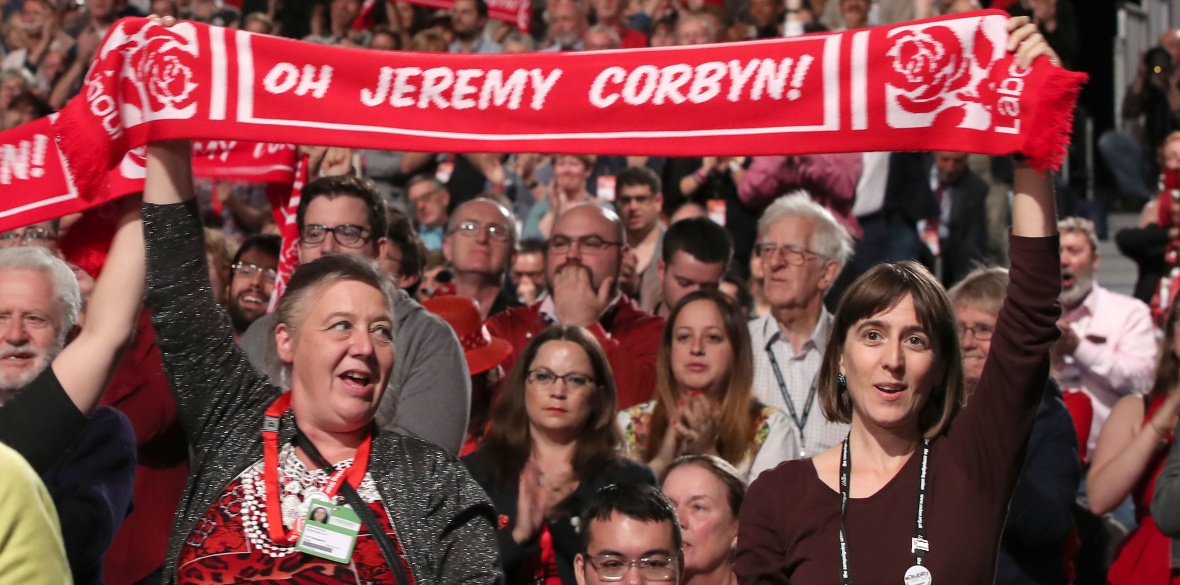AS LABOUR’S virtual replacement for party conference begins this weekend, demonstrators will take action in solidarity with refugees in dozens of places across Britain.
The demos organised by Care4Calais, Stand Up to Racism, Status Now 4 All and other groups take place as Home Secretary Priti Patel vows to deport a thousand refugees by Christmas.
Socialists attending any of the solidarity actions may remember another Labour conference five years ago, when the newly elected party leader’s first act was to attend a rally in solidarity with refugees in central London.
This year’s event will feel very different. It is not just coronavirus that has put an end to the packed-out carnivals of the left that Labour conferences became over the last five years. It is hard to imagine Keir Starmer rocking up at an anti-racist demo in solidarity.
The manner in which Jeremy Corbyn began his leadership signalled his “new kind of politics” in the most unambiguous way possible. Support for refugees does not go down well with focus groups or policy wonks.
The approach of previous Labour and Tory governments to globalisation was to constantly accommodate the demands of transnational capital with all the associated downsides for jobs, wages, workers’ rights and public services, while responding periodically to the resulting anxiety with measures to harass and persecute the poorest economic migrants and refugees.
By contrast Corbyn inspired with the idea that “politics” might be more than a bland contest between professionals to develop a formula that secures electoral success, high office, and, in too many cases, subsequent personal riches of dubious origin.
It could be a means of changing the world. And he made the case that it could be worth standing up for unpopular causes because people’s minds can change when you take the time to argue your case.
The reasons for the defeat of this “new kind of politics” have been debated in detail ever since last December’s devastating election.
The first Labour “conference” post-Corbyn is a good time to assert one key lesson.
The Corbyn project did well when it was boldest and most radical. It tended to founder when it gave ground to its enemies.
This seems paradoxical — the political playbook would suggest that compromise was the logical answer to Corbyn’s weak support in the parliamentary party and Labour Party machinery.
But compromise with forces that were determined, from the outset, that they would not tolerate any threat to the wealth or power of Britain’s ruling class was a recipe for defeat.
When Corbynism had the courage of its convictions, as at the refugee demo or, in the 2017 election, when Corbyn pointed to the role played by Britain’s foreign policy in feeding conflict and terrorism, it found it had listeners.
But, particularly on foreign policy, it was often too cautious to make these arguments, allowing Labour to remain pro-Nato and pro-nuclear.
These “compromises” did not win over many warmongers — Corbyn’s long record as a peace campaigner was forgotten by no-one and the right-wing press used it to fling all kinds of abuse at him. But Labour’s official line did prevent his supporters from making arguments that could have won public support for a different kind of policy.
This was not the only or even the main cause of the defeat of the Corbyn project, but it is a useful starting point when the left looks to rebuild.
Many voices already caution that we tried to do too much, that sticking to this or that principle was never going to wash with the public and should be downplayed or dropped. The victims of such “triangulation” are often the most vulnerable people on Earth.
As socialists, we should reject such counsel. A powerful socialist movement was built up by a willingness to confront political orthodoxy and argue that another world is possible. This weekend, we do that by standing in solidarity with refugees.












